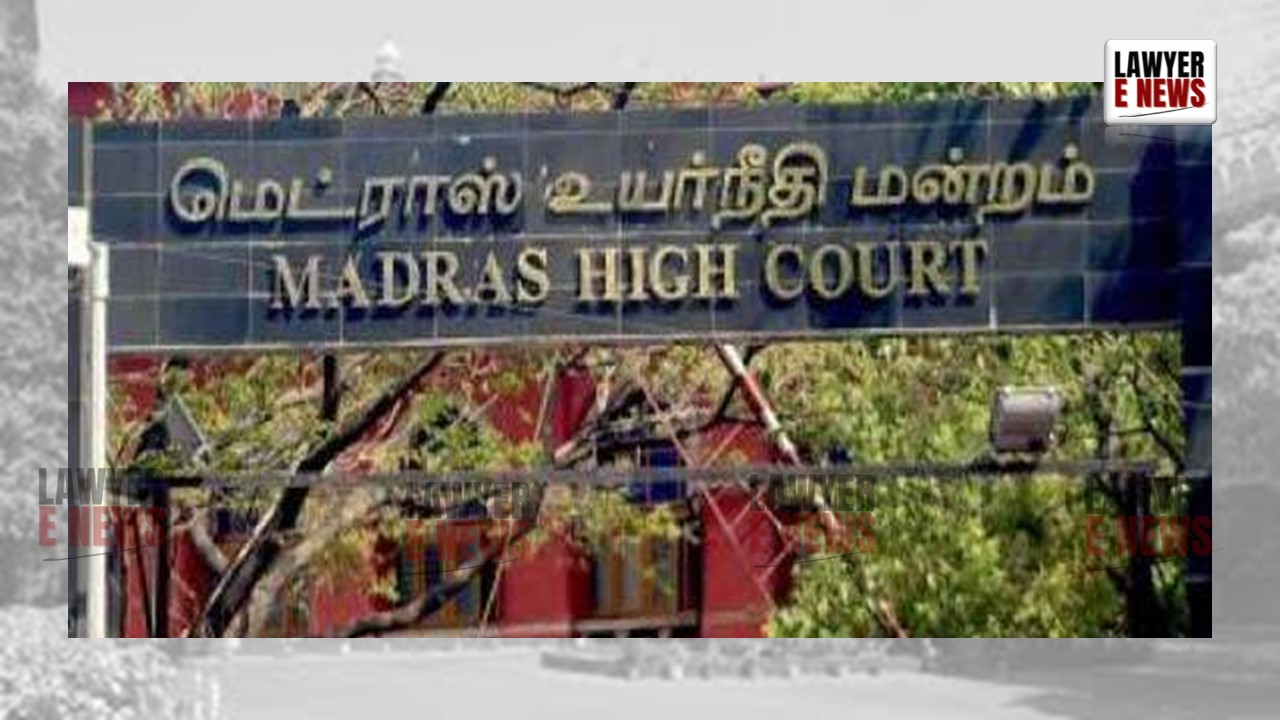-
by sayum
07 February 2026 8:36 AM



Madras High Court, in a landmark decision, dismissed a criminal revision petition filed by S.Ve. Shekar, a former Member of the Tamil Nadu Legislative Assembly, upholding his conviction for forwarding a derogatory social media post targeting women journalists. The Court reaffirmed the principle that forwarding offensive content on social media constitutes liability and emphasized that an apology, however public, does not absolve the damage caused by defamatory statements.
The case arose from a Facebook post containing derogatory comments about women journalists, allegedly forwarded by the petitioner. Based on the complaint by the victim (P.W.2), the petitioner was charged under Sections 504 (intentional insult with intent to provoke breach of peace) and 509 (word, gesture, or act intended to insult the modesty of a woman) of the Indian Penal Code, and Section 4 of the Tamil Nadu Prohibition of Harassment of Women Act, 2002. The Assistant Sessions Court for trial of criminal cases related to MPs and MLAs convicted Shekar and sentenced him to imprisonment.
The petitioner contended that he forwarded the post without reading its content, asserting a lack of mens rea (criminal intent). He also argued that the screenshot relied upon by the prosecution was inadmissible as it lacked a Section 65-B certificate under the Indian Evidence Act, which is necessary to authenticate electronic evidence. His counsel further highlighted procedural lapses, including inconsistencies in witness testimonies and failure to seize the petitioner’s electronic devices during the investigation.
The petitioner maintained that his unconditional apology, offered publicly, demonstrated a lack of malicious intent. Moreover, he argued that the Trial Court failed to consider the absence of any direct evidence proving that the petitioner knowingly forwarded the message.
The prosecution presented evidence, including a screenshot of the offensive post (Ex.P-3) and testimony from seven witnesses, asserting that Shekar’s actions amounted to deliberate forwarding of harmful content. The prosecution highlighted the fact that the petitioner deleted the post and issued an apology only after widespread backlash, proving his awareness of the post's offensive nature.
The victim (P.W.2) testified that the post degraded the reputation of women journalists, causing irreparable harm to their dignity. The prosecution also relied on the petitioner’s admissions during cross-examination, where he acknowledged forwarding the message, albeit claiming ignorance of its content.
Justice P. Velmurugan, presiding over the revision petition, extensively analyzed the evidence and testimonies. The Court rejected the petitioner’s argument that the lack of a Section 65-B certificate rendered the screenshot inadmissible. It held that the prosecution had sufficiently corroborated the electronic evidence with the petitioner’s admissions and circumstantial proof, making the non-compliance with Section 65-B non-fatal to the case.
Addressing the question of mens rea, the Court observed that the petitioner’s subsequent deletion of the post and public apology indicated his awareness of the content and its consequences. Justice Velmurugan noted:
“Merely tendering an apology does not undo the harm caused by the defamatory content. Once the message has been disseminated and viewed by the public, the damage to the victim’s reputation is done, and an apology cannot erase it.”
The Court also emphasized the principle that forwarding content on social media without due diligence holds individuals liable, especially when the content is defamatory or offensive.
Highlighting the limited scope of revisional jurisdiction, the Court stressed that it cannot reappreciate evidence unless there is a clear perversity in the findings of the lower court. In this case, the Trial Court’s findings were supported by evidence and did not exhibit any procedural or legal irregularity.
The High Court dismissed the revision petition, confirming the petitioner’s conviction and sentence as imposed by the Trial Court. However, the Court granted the petitioner a 90-day stay on the execution of his sentence, allowing him time to file a Special Leave Petition before the Supreme Court.
The judgment reaffirms the responsibility of individuals to exercise caution when sharing content on social media. It also underscores the legal implications of forwarding offensive material, emphasizing that digital platforms are not a space free from accountability.
This ruling serves as a significant precedent in addressing cyber harassment, particularly cases involving defamatory content against women, and reinforces the judiciary's commitment to upholding women’s dignity in the digital age.
Date of Decision : 02 January 2025
